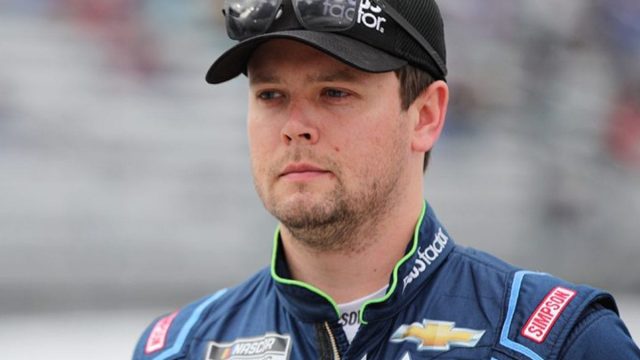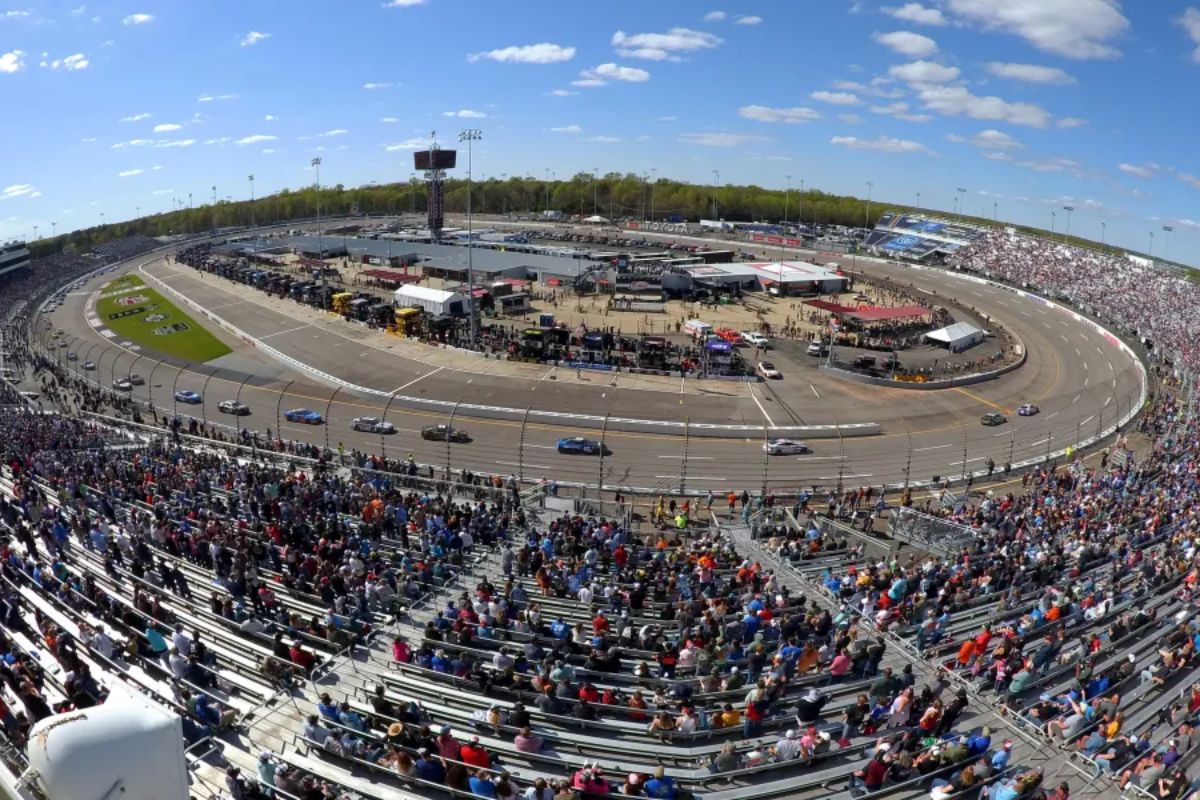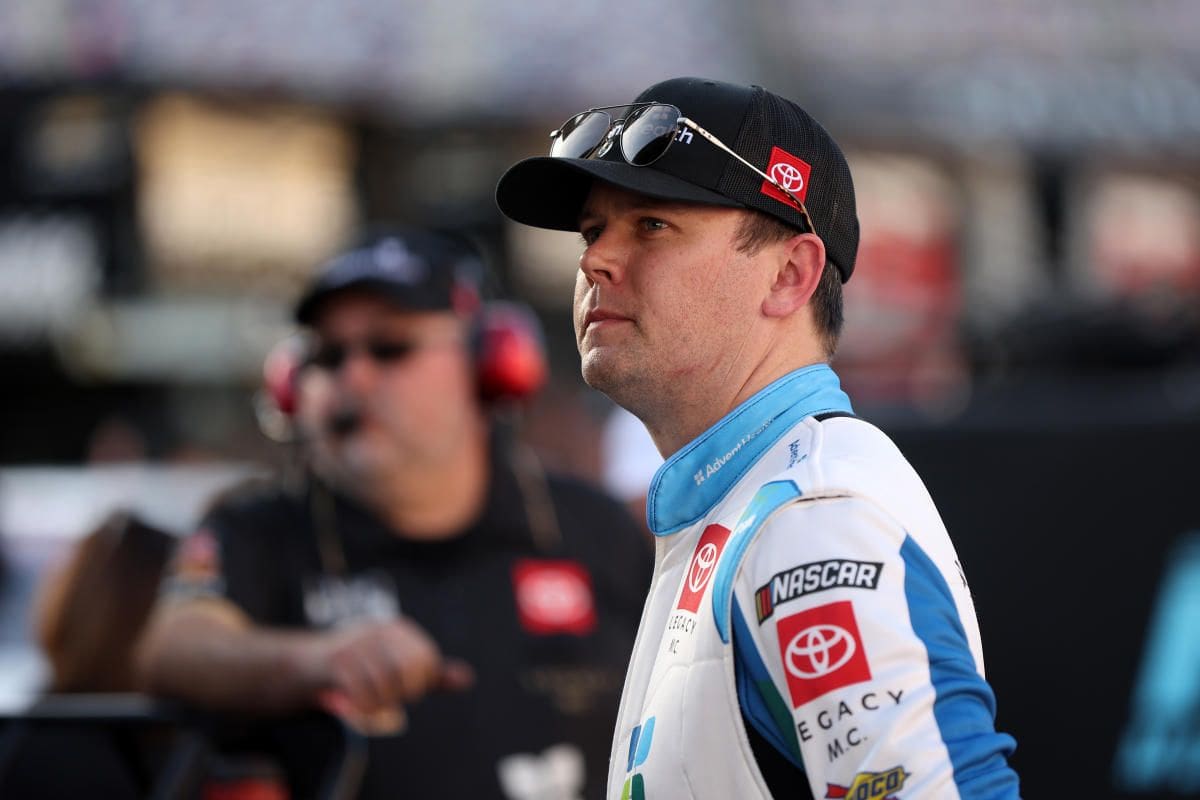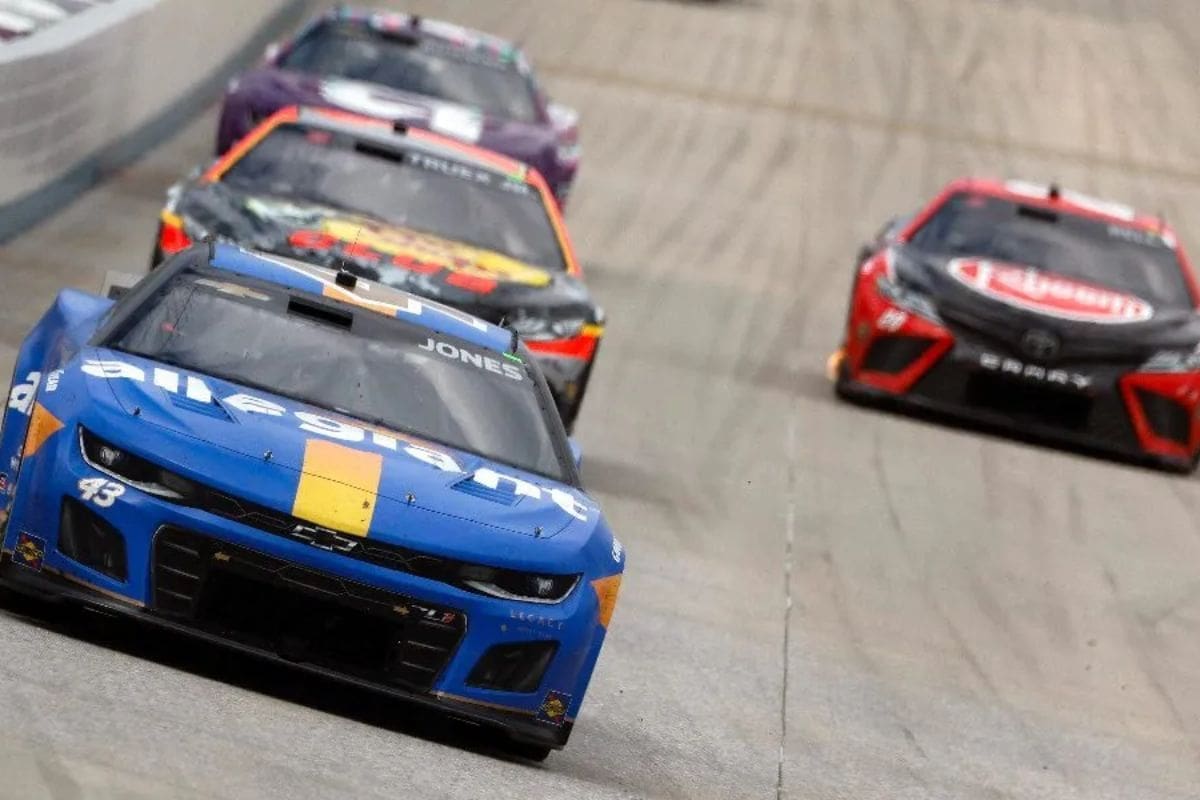Erik Jones Rejects Dale Sr.’s Style: The contrasting views of Erik Jones and Jimmie Johnson regarding aggressive racing tactics highlight a pivotal moment in NASCAR’s evolving culture. While Jones advocates for a more ethical approach, distancing himself from the hard-nosed style of Dale Earnhardt Sr., Johnson welcomes the competitive edge that such tactics can bring to the sport. This discourse raises critical questions about the balance between sportsmanship and competitiveness in racing. As Jones’s perspective gains traction among younger drivers, it begs the question: what implications will this have for the future of NASCAR?
Key Highlights
- Erik Jones advocates for a principled racing approach, rejecting aggressive tactics reminiscent of Dale Earnhardt’s style.
- Jimmie Johnson celebrates Austin Dillon’s competitive performance, aligning with traditional NASCAR competitiveness.
- The Richmond controversy highlights the ongoing debate between aggressive racing and sportsmanship in NASCAR.
- Jones emphasizes the importance of self-policing and accountability in racing ethics among drivers.
- NASCAR’s point system is critiqued for incentivizing reckless behavior, prompting calls for a reevaluation for safety and integrity.
Diverging Opinions on the Richmond Controversy
The Richmond controversy has ignited a divide within the NASCAR community, highlighting contrasting viewpoints on competitive ethics and racecraft. The recent events surrounding Austin Dillon’s victory have polarized opinions, exemplifying a deeper ideological rift among drivers and fans alike.
On one side, figures like Jimmie Johnson express a celebratory stance on Dillon’s performance, suggesting that such tactics are part of the sport’s inherent competitiveness. Johnson aligns himself with the view that aggressive maneuvers are not only acceptable but integral to the essence of racing.
Conversely, Erik Jones offers a clear rebuttal, drawing parallels between Dillon’s actions and the controversial tactics employed by the legendary Dale Earnhardt. Jones’s criticism emphasizes a fundamental disagreement on what constitutes acceptable racecraft, positioning him as a voice for those who advocate for a more traditional interpretation of sportsmanship.
Dale Earnhardt’s Legacy and Comparisons
While many celebrate Dale Earnhardt’s legacy as a cornerstone of NASCAR’s history, his aggressive racing style remains a point of contention that shapes contemporary discussions on racecraft. Earnhardt, revered as a seven-time Cup Series champion, earned the moniker “The Intimidator” due to his preference for using physicality on the track, often resorting to bumping and spinning rivals to secure victories. This approach, while undeniably effective during his era, has sparked debates regarding the ethics and safety of such tactics in modern racing.
The legacy of Earnhardt is further complicated by his tragic death at the Daytona 500 in 2001, a reminder of the inherent risks associated with high-speed competition. His controversial methods, which garnered both admiration and criticism, highlight a dichotomy within NASCAR’s community—a balance that weighs the thrill of aggressive maneuvering against the necessity for driver safety.
Despite being penalized multiple times, Earnhardt remained steadfast in his approach, an indication of his deep-rooted belief in a racing philosophy that emphasized dominance over restraint.
The recent parallels drawn by Jimmie Johnson, who noted “Dale Sr vibes” in contemporary racing, shows how Earnhardt’s influence persists. However, the emergence of drivers like Erik Jones, who reject such aggressive tactics, signals an evolving landscape in NASCAR.
Dale Sr vibes https://t.co/VMpI26bcXD
— Jimmie Johnson (@JimmieJohnson) August 12, 2024
Erik Jones’ Perspective
Erik Jones represents a new generation of NASCAR drivers who prioritize a more principled approach to racing, distinguishing himself from the aggressive tactics emblematic of icons like Dale Earnhardt. His recent remarks regarding Austin Dillon’s controversial maneuvers underscore his commitment to a code of ethics within the sport.
When asked if he would emulate Dillon’s aggressive driving style, Jones unequivocally stated, “No, that’s not the way I race. I don’t think I could do that. It’s not in my playbook.” This sentiment demonstrates his belief in self-policing and accountability on the track.
.@bobpockrass asks @Erik_Jones if he would have done what Austin Dillon did last weekend at Richmond to get into the Playoffs?
Jones replied "No, that's not the way I race.
"I don't think I could do that. It's not in my playbook." #NASCAR
— Chris Knight (@Knighter01) August 17, 2024
Jones’s perspective aligns with NASCAR’s emphasis on understanding one’s limits and making responsible decisions during competition. The sport has long advocated for drivers to recognize the fine line between competitive spirit and recklessness, a lesson that has increasingly resonated with contemporary athletes.
By rejecting the aggressive tactics of previous eras, Jones positions himself as a proponent of a more sportsmanlike approach, which not only fosters respect among competitors but also improves the integrity of the sport itself.
Discussion on NASCAR’s Format and Point System
NASCAR’s format and point system have come under examination as drivers increasingly resort to aggressive tactics to secure playoff positions. The sport’s current point structure, which some insiders perceive as rigged, incentivizes desperate measures for those failing to accumulate sufficient points during the regular season. This has fostered an environment where winning races by any means necessary becomes the norm, as evidenced by incidents like Joey Logano’s disqualification from the 2023 Playoffs for reckless behavior.
The introduction of the Matt Kenseth Rule aimed to inject excitement into the sport, a vital strategy during a period of dwindling viewership. However, it has inadvertently encouraged a culture of irresponsibility, where drivers prioritize playoff access over safety and ethical racing. Such reckless driving poses substantial risks not only to those behind the wheel but also to the integrity of the sport itself.
While NASCAR’s entertaining aspects are significant, a recalibration of the point system and its implications is essential. Participants must uphold personal ethics and respect common standards, even when these are not explicitly defined. The onus lies with all stakeholders—from drivers to officials—to maintain a moral compass, ensuring that the competitive spirit of NASCAR does not devolve into chaos.
News in Brief: Erik Jones Rejects Dale Sr.’s Style
The contrasting viewpoints of Erik Jones and Jimmie Johnson underscore a notable discourse within NASCAR regarding racing ethics and competitive conduct. Jones advocates for a principled approach, emphasizing accountability and sportsmanship, while Johnson welcomes the aggressive spirit of competition exemplified by recent victories. This divergence not only reflects individual philosophies but also signals a potential cultural shift in the sport, as newer drivers challenge established norms and call for a reevaluation of aggressive racing tactics in favor of responsible conduct.
ALSO READ: Erik Jones Revives Jimmie Johnson Partnership After JGR Setback



